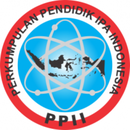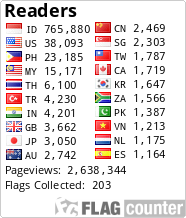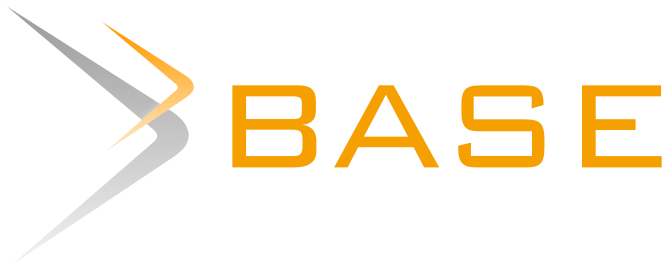Robotic Christmas Activities with Beebot: A STEM Application for Preschool Education
K. T. Kotsis, University of Ioannina, Greece
Abstract
Keywords
Full Text:
PDFReferences
Abanoz, T., & Kalelioğlu, F. (n.d.). Unleashing the potential: illuminating pedagogical strategies employed by early childhood educators in stem education for cultivating algorithmic thinking skills in young learners. European Early Childhood Education Research Journal, 0(0). https://doi.org/10.1080/1350293X.2024.2339274
Bowen, G.M., Knoll, E., Willison, A.M. (2023). Using Bee-Bots® in Early Learning STEM: An Analysis of Resources. In: Tippett, C.D., Milford, T.M. (eds) Exploring Elementary Science Teaching and Learning in Canada. Contemporary Trends and Issues in Science Education, vol 53. Springer, Cham. https://doi.org/10.1007/978-3-031-23936-6_9
Campbell, C., & Speldewinde, C. (2021). Early Childhood STEM Education for Sustainable Development. Sustainability, 14(6), 3524. https://doi.org/10.3390/su14063524
Capobianco, B. M., & Rupp, M. (2014). STEM Teachers' Planned and Enacted Attempts at Implementing Engineering Design-Based Instruction. School Science and Mathematics, 114(6), 258-270. https://doi.org/10.1111/ssm.12078
Damjanovic, V., & Ward, J. (2024). Exploring inquiry-based STEM in preschool: The treehouse project. School Science and Mathematics, 124(5), 359-367. https://doi.org/10.1111/ssm.12640
Early Childhood Curriculum (2023). fek-b-687-10-02-2023-prosholiki-ekpaidefsi.pdf - Google Drive
Eguchi, A. (2010). What is Educational Robotics? Theories behind it and practical implementation. In D. Gibson & B. Dodge (Eds.), Proceedings of SITE 2010--Society for Information Technology & Teacher Education International Conference (4006–4014). San Diego, CA, USA: Association for the Advancement of Computing in Education (AACE). Retrieved September 21, 2024 from https://www.learntechlib.org/primary/p/34007/
Emembolu, I., Padwick, A., Shimwell, J., Sanderson, J., Davenport, C., & Strachan, R. (2020). Using action research to design and evaluate sustained and inclusive engagement to improve children’s knowledge and perception of STEM careers. International Journal of Science Education, 42(5), 764–782. https://doi.org/10.1080/09500693.2020.1729442
Fauzan, B. A., Akbar, S. F., Kusnadi, D., & Sofyan, A. (2023). Changes in Students’ Cognitive Abilities through STEM-Based Learning in Elementary Schools. Mosharafa: Jurnal Pendidikan Matematika, 12(1), 89–100. https://doi.org/10.31980/mosharafa.v12i1.755
Ghazali, A., Ashari, Z.M., & Hardman, J. (2024). A scoping review on STEM education: The best practices recorded through previous studies in early childhood education setting. International Journal of Education in Mathematics, Science, and Technology (IJEMST), 12(3), 810-835.
https://doi.org/10.1080/03004430.2024.2349624
Intisari, Mutmainnah, & Andi Asrifan. (2024). Integrating STEM in Early Childhood Education: A Cutting-Edge Study on PAUD Development in Indonesia. British Journal of Teacher Education and Pedagogy, 3(1), 74–86. https://doi.org/10.32996/bjtep.2024.3.1.7
John, M.-S., Sibuma, B., Wunnava, S., Anggoro, F., & Dubosarsky, M. (2018). An Iterative Participatory Approach to Developing an Early Childhood Problem-based STEM Curriculum. European Journal of STEM Education, 3(3), 07. https://doi.org/10.20897/ejsteme/3867
Kazakoff, E.R., Macaruso, P., & Hook, P.E. (2018). Efficacy of a blended learning approach to elementary school reading instruction for students who are English Learners. Educational Technology Research and Development, 66, 429–449.
Mosley, P., Ardito, G., & Scollins, L. (2016). Robotic Cooperative Learning Promotes Student STEM Interest. American Journal of Engineering Education, 7, 117-128. https://doi.org/10.19030/ajee.v7i2.9895
Movahedazarhouligh, S., Kermani, H., Aldemir, J. (2023). STEM Integrated Curriculums in Early Childhood Education: An Exploration of Teachers’ Pedagogical Beliefs and Practices. International Journal of Modern Education Studies, 7(2), 106–127. https://doi.org/10.51383/ijonmes.2022.266
Preston, C. (2024). STEM education in early childhood. In C. Campbell & C. Howitt (Eds.), Science in Early Childhood (pp. 163–180). chapter, Cambridge: Cambridge University Press.
Ramulumo, M. (2024). Exploring the Impact of Early STEM Education on Science and Visual Literacy. Journal of Education in Science, Environment and Health, 10(3), 216–229. https://doi.org/10.55549/jeseh.725
Rasyid, A., Sugandi, M. K., Gaffar, A. A., Jatisunda, M. G., Santoso, E., & Nahdi, D. S. (2021). Teaching STEM through play in kindergarten: analysis towards pre-service early childhood teachers preparing the lesson plan. In Journal of Physics: Conference Series, Vol. 1764, No. 1, p. 012130. https://doi.org/10.1088/1742-6596/1764/1/012130
Samara, V., & Kotsis, K. T. (2023a). A teaching intervention for magnetism using STEM in kindergarten. International Journal of Professional Development, Learners and Learning, 5(2), ep2312. https://doi.org/10.30935/ijpdll/13667
Samara, V., & Kotsis, K. T. (2023b). Educational Robotics in Primary Education in Greece: Methodological Approaches and Attitudes of Teachers. A Bibliographic Review. European Journal of Education and Pedagogy, 4(2), 194–204. https://doi.org/10.24018/ejedu.2023.4.2.629
Samara, V., & Kotsis, K. T. (2023c). Primary school teachers’ perceptions of using STEM in the classroom attitudes, obstacles, and suggestions: A literature review. Contemporary Mathematics and Science Education, 4(2), ep23018. https://doi.org/10.30935/conmaths/13298
Su, J., & Yang, W. (2023). STEM in Early Childhood Education: A Bibliometric Analysis. Research in Science & Technological Education, 1–22. https://doi.org/10.1080/02635143.2023.2201673
Tallou, K. (2022). A proposal to introduce STEM and educational robotics in kindergarten through an educational scenario for the global food system with resources from Europeana. Advances in Mobile Learning Educational Research, 2(2), 509-517. https://doi.org/10.25082/AMLER.2022.02.020
Weber A.M. & Greiff, S. (2023). ICT Skills in the Deployment of 21st Century Skills: A (Cognitive) Developmental Perspective through
Early Childhood. https://doi.org/10.3390/app13074615
Yang, W., Du, Y., Wu, R., & Xiang, S. (2024). Development and validation of the children’s STEM habits of mind questionnaire. Early Childhood Education Journal, 52(3), 493-501. https://doi.org/10.1007/s10643-023-01451-5
Zhang, M., Passalacqua, S., Lundeberg, M., Koehler, M. J., Eberhardt, J., Parker, J., …& Paik, S. (2010). “Science Talks” in Kindergarten Classrooms: Improving Classroom Practice Through Collaborative Action Research. Journal of Science Teacher Education, 21(2), 161–179. https://doi.org/10.1007/s10972-009-9161-8
Zhang, Y., Tan, B., Yue, Y., & Cui, M. (2024). Integrating a hybrid mode into kindergarten STEM education: its impact on young children’s critical thinking skills during the COVID-19 pandemic. Early Child Development and Care, 1–20. https://doi.org/10.1080/03004430.2024.2349624
DOI: https://doi.org/10.21831/jser.v9i1.77862
Refbacks
- There are currently no refbacks.

This work is licensed under a Creative Commons Attribution-ShareAlike 4.0 International License.
Based on a work at https://journal.uny.ac.id/index.php/jser/index
Accepted and published papers will be freely accessed in this website and the following abstracting & indexing databases:
This work is licensed under a Creative Commons Attribution-ShareAlike 4.0 International License.








_-_Copy1.jpg)
.jpg)




